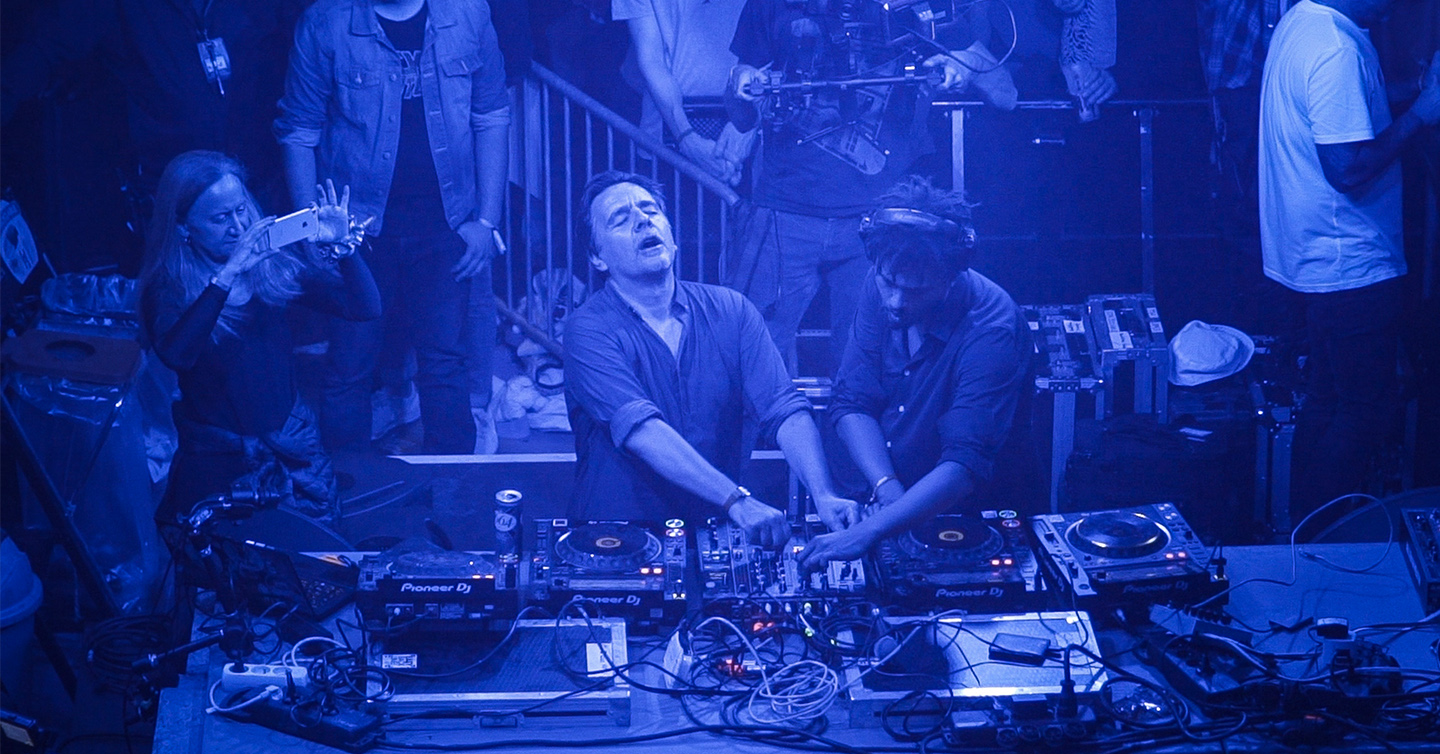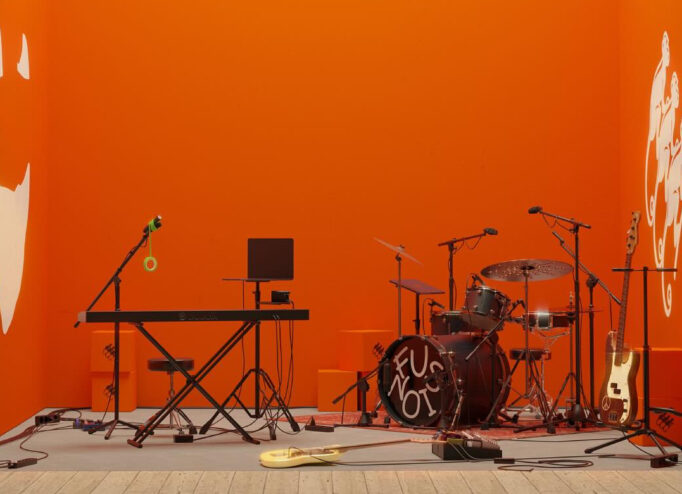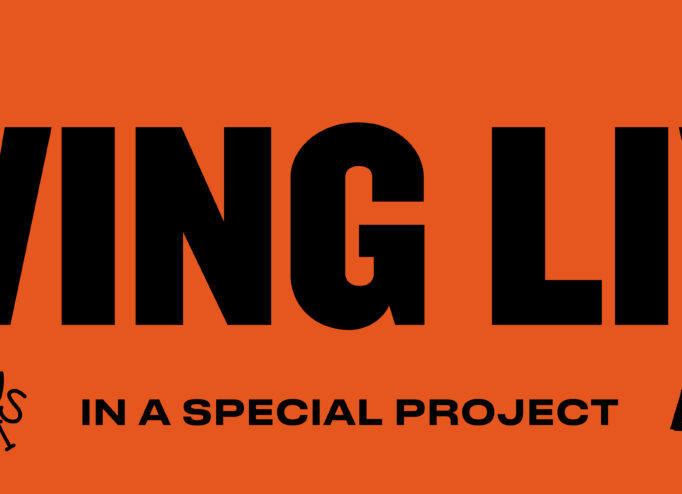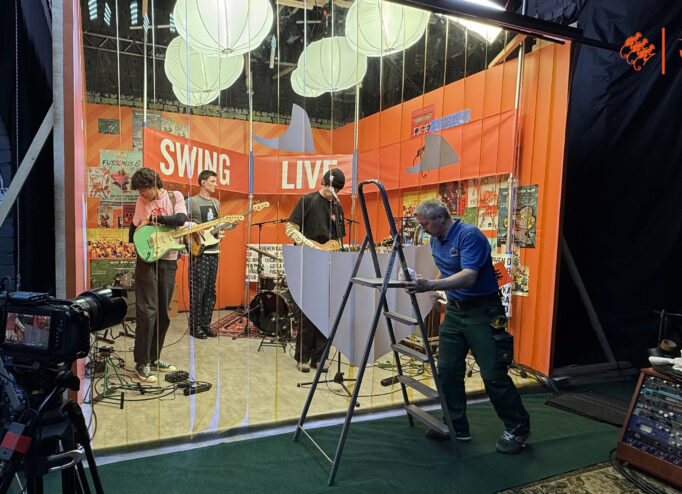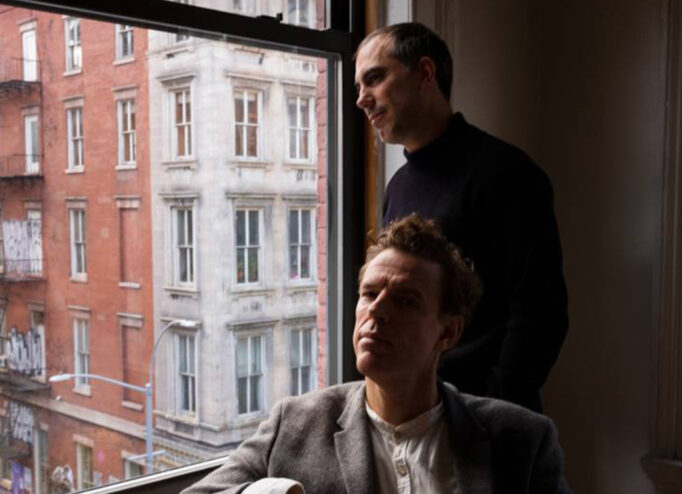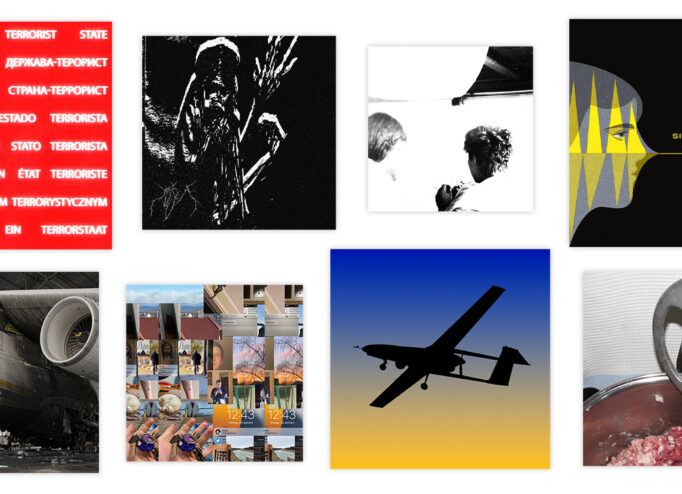Even the high-profile title “Godfather of French techno” does not reveal all the directions in which Laurent Garnier has achieved success. Among them are already iconic for the scene autobiographical book “Electroshock“, writing music for TV, films and theater, organizing music festivals, labels (the current COD3 QR, and closed in 2008, but respected FCom), as well as the patronage of radio shows, advocating for the rights of the techno community, and restaurant work.
One of the musician’s last large-scale projects is the documentary Laurent Garnier: Off the record. The film is called “Laurent Garnier: Electroshock“ in Ukrainian cinemas, but Laurent emphasizes every time that it is not an adaptation of the same book.
Off the record is a look at the career of the main character, where archive footage is intertwined with footage of recent performances. However, the film is not just about Garnier. It features interviews with Carl Cox, Richie Hawtin, Jeff Mills, Kenny Larkin and many other iconic artists, allowing viewers to learn more about the club scenes of Detroit, Chicago, New York, London and Manchester.
In an interview with DTF Magazine Laurent Garnier talks about the work on the film, the failed first version and the moments not included in the final version, and what DJing and filmmaking have in common. We also discussed the concept of the new album, the development and commercialization of the techno scene and how DJs influence their fans.
About the documentary
— If you don’t mind, let’s start with your recent project, the documentary “Laurent Garnier: Off the Record” made in collaboration with French director Gabin Rivoire. Were you worried about how the audience would react to the film while working on it, whether people would like it or not? Or were you sure of its success?
— With a project like this, you have to consider that you are not doing it for yourself. Making a record is a very different story. This is an introspective experience and a self-centred trip in a way. When you make music, you need to be honest with yourself. And if people enjoy the result, it is great. But it doesn’t matter if they don’t. I don’t have to be embarrassed because no one is forcing me to please anybody.
But when it comes to a documentary, a lot of money is involved. And we also launched a Kickstarter campaign. So, there was a community growing around [our film]. Of course, you have to work with all your heart and do things the way you believe is good. But you have to think about other people as well.
The idea was not to make a movie about myself but to use me as a red line along the way and talk to anybody else. That was very clear from the beginning. So, when we started working, I had no doubts and was not scared about how the documentary would be perceived. Gabin, Julien, the producer, and I knew where we wanted to go. And then, when everything was done, we should let it go, saying, “Ok, we are happy with it and hope that people will be too”.
Of course, you can’t please everyone, but a lot also depends on how you present your work. I think the way you talk about any project is very important. I try to make sure that people don’t misunderstand my work. If you go to see the film thinking you will learn the whole history of techno music, this is wrong.
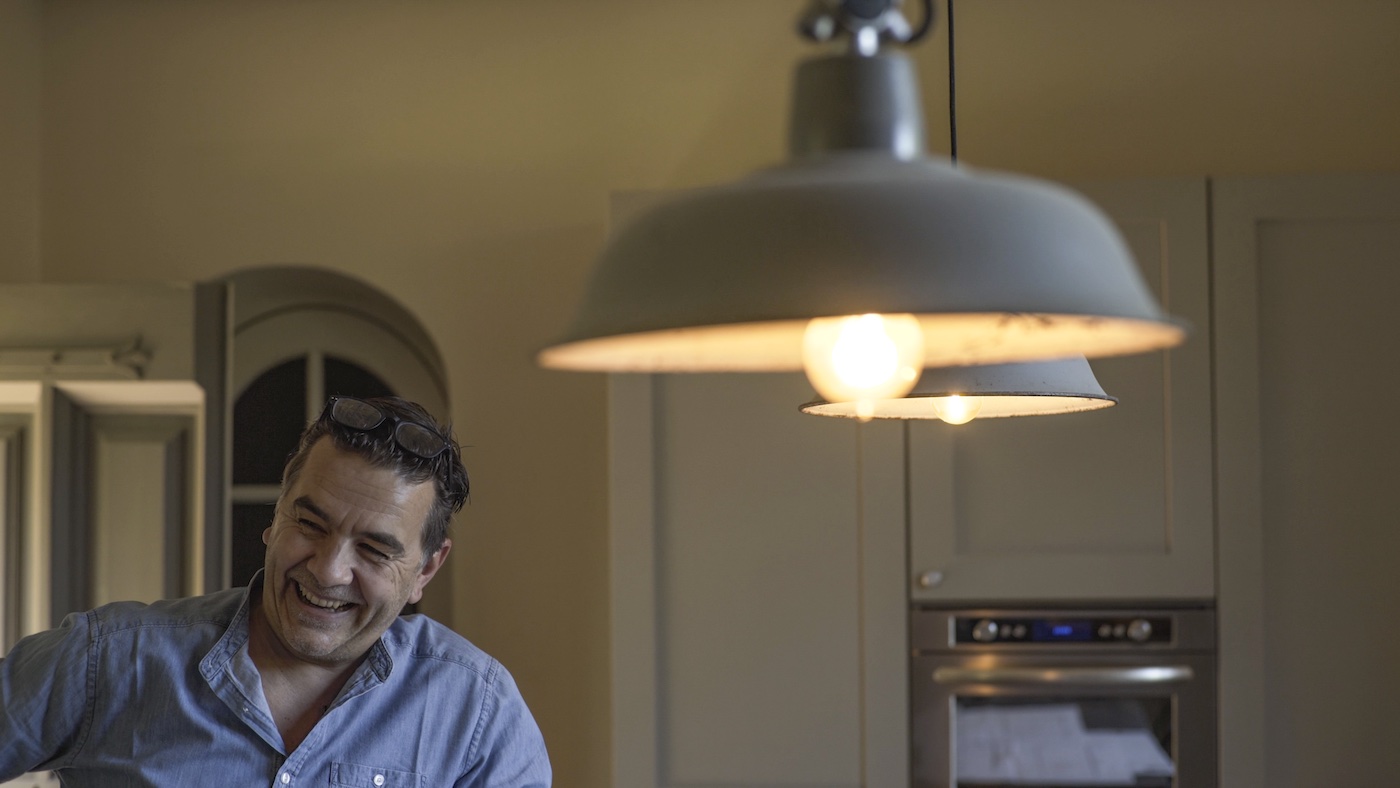
Лоран Ґарньє
— For Gabin, it was the first such work, the first feature-length documentary. It was quite a bold decision from your side to entrust this project to him. How did you know he would be up to the task?
— I chose Gabin because I really like his way of filming music. There is so much poetry in it, and I thought he was a little different from other people.
When I met him, he was filming a small pop-rock festival I co-organised in the south of France. The first thing I saw of his works was footage of a heavy punk band. He decided to show their performance in slow motion and sound the whole action with classical music, which was the exact opposite of what they were actually playing. I liked that. I trusted Gabin and his work.
Of course, there could be mistakes, and it could turn out badly.
The first edit of the film was actually bad. And I rang Gabin and said, “This is no fucking way!”. It was very academic, so chronological, like a lot of documentaries, and this is exactly what I didn’t want.
So, we decided to take what Gabin filmed, many beautiful moments and put them in other places. Because people can step out of the story and come back in it, they are not stupid.
It is like a puzzle, and we helped each other build it up. We’d been working a lot for four years, as more and more people got involved and shared their thoughts with us. And in the end, we were happy. When it started becoming tasty, I thought that we’d got it.
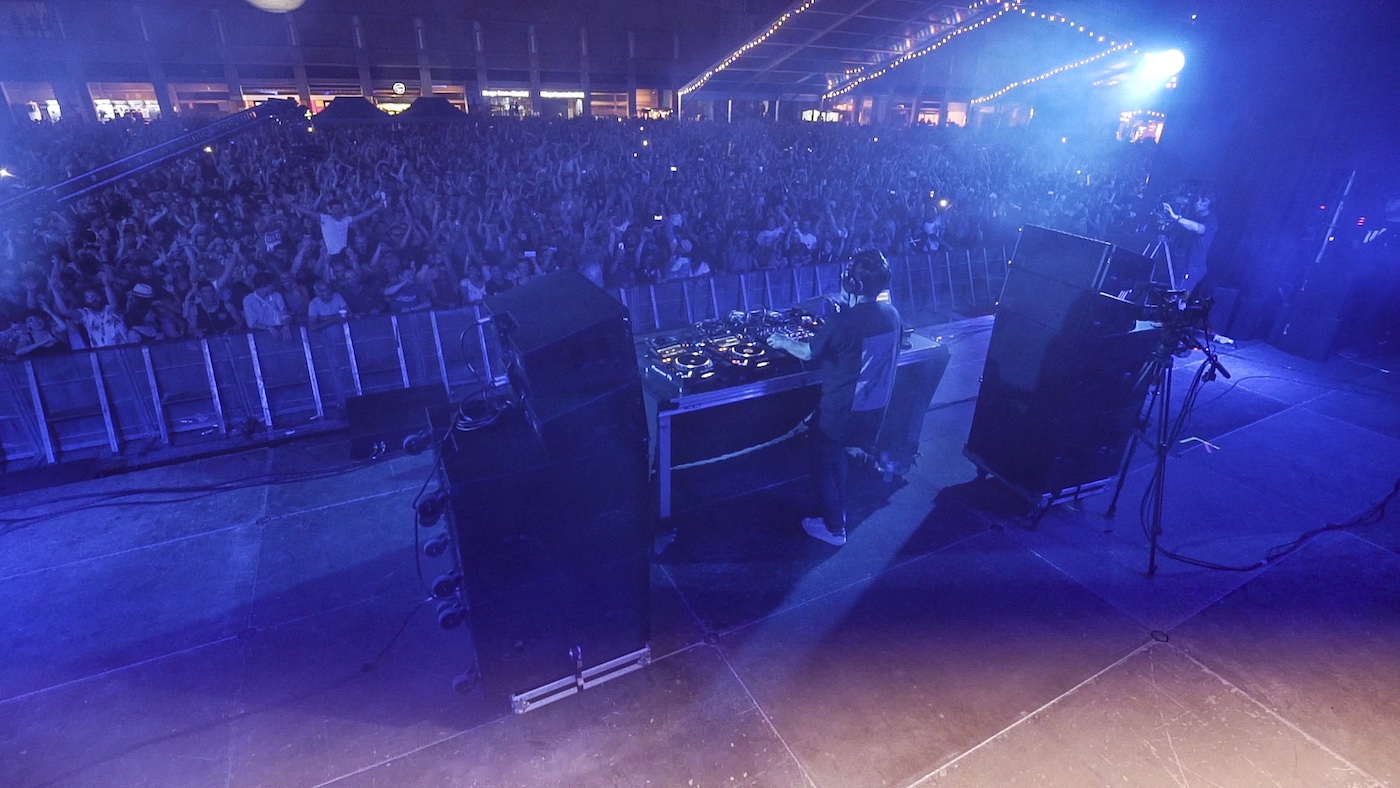
Laurent Garnier during the set
— You noted that after seeing the first documentary edition, you had to deconstruct it and reorganise the small pieces differently. It sounds like producing a track in a way or building a DJ set when you also play with puzzles to create the bigger picture. So, you kind of implemented your musical experience in the filmmaking process.
— Interestingly, you said that because we — Gabin, Julian and I — wanted to see our film like a DJ set, where there are up and down moments. You are in a rush, fall in love, and feel sad, you know… Moments of pause and poetry. It is more introspective. We strived to create a rollercoaster ride in a way. Because we knew very well, we couldn’t tell the whole story.
ЗThe pitch has changed a lot in the four years of our work. In the beginning, Gabin didn’t know anything about house and techno. He read my book “Electrochoc”, which was a good reference, and then started filming interviews. So, a lot of new subjects have come up because great people like Jeff Mills, for example, have many stories to tell.
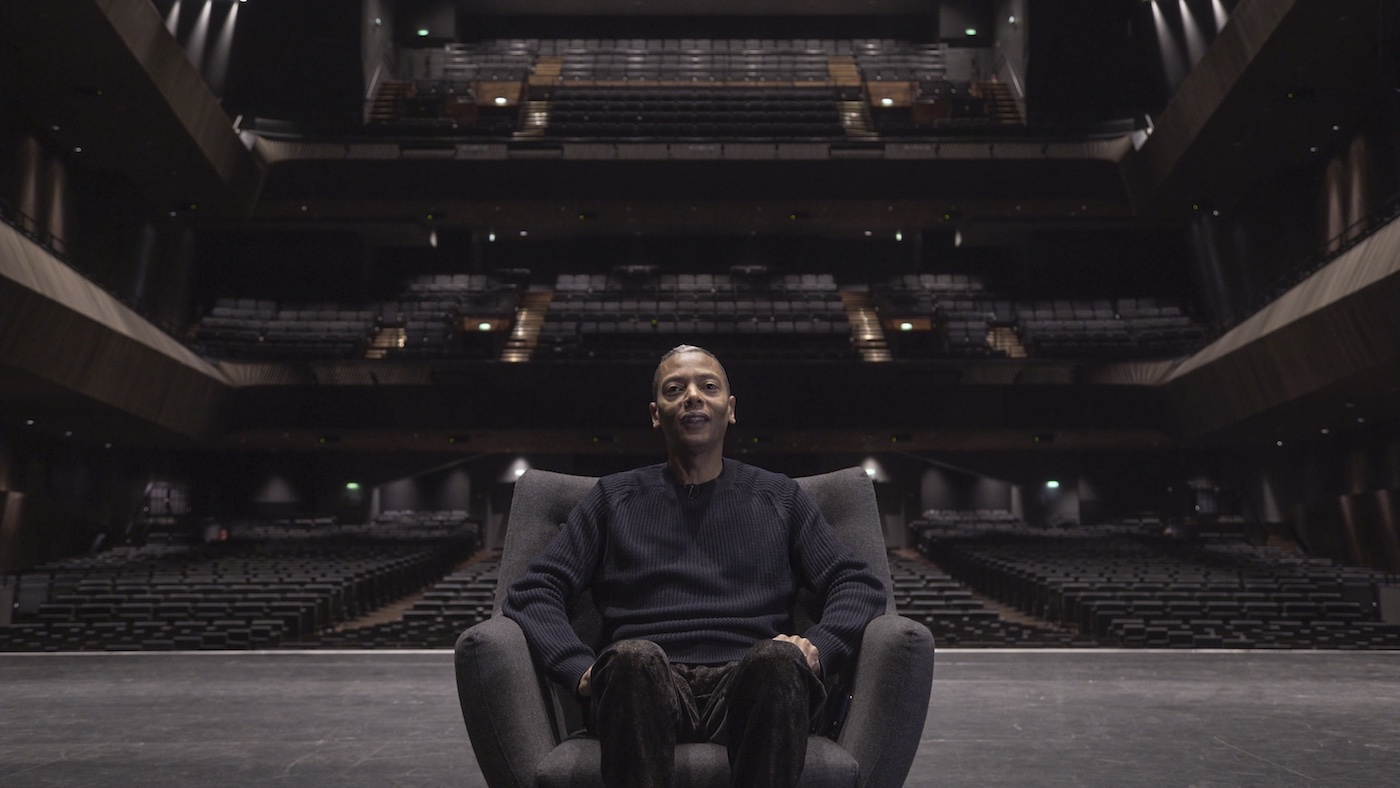
Jeff Mills
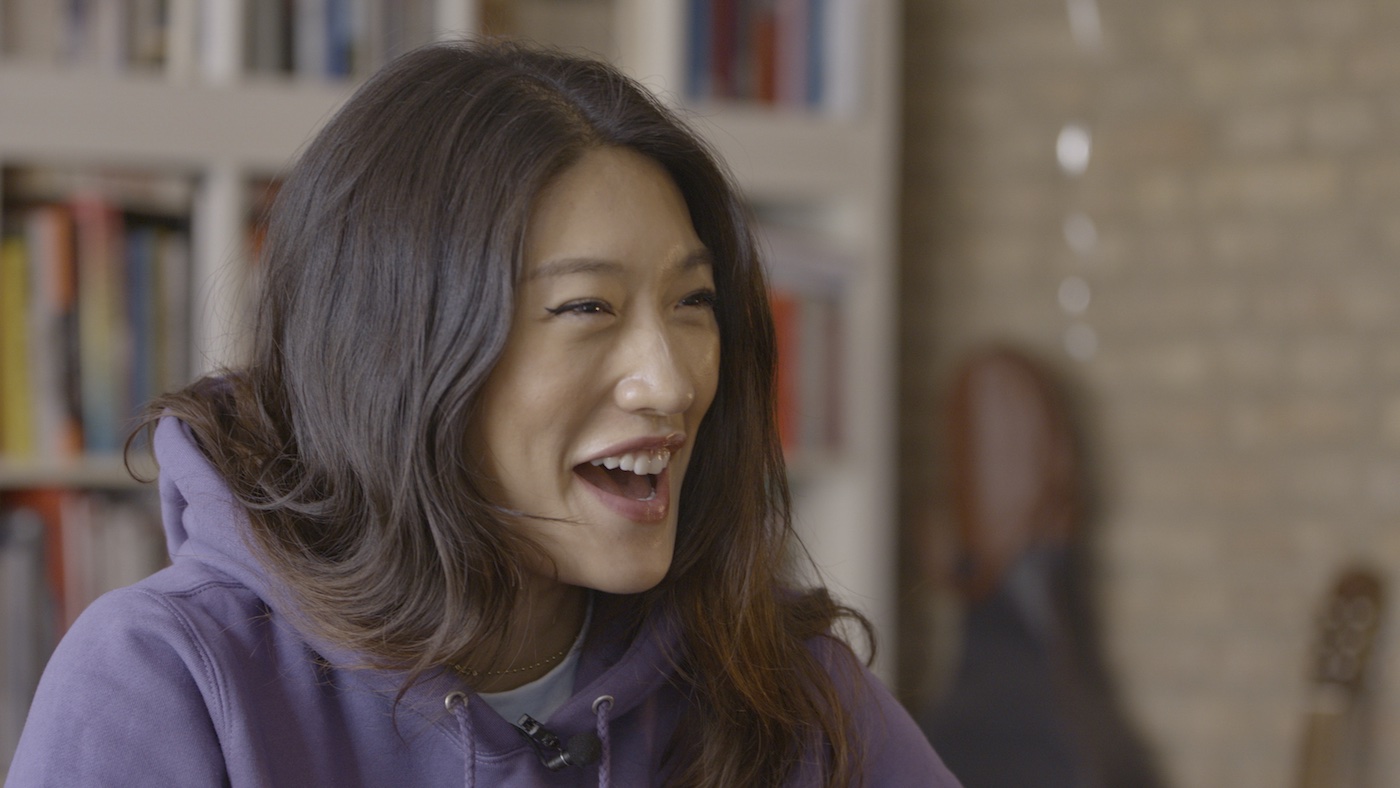
Peggy Gou
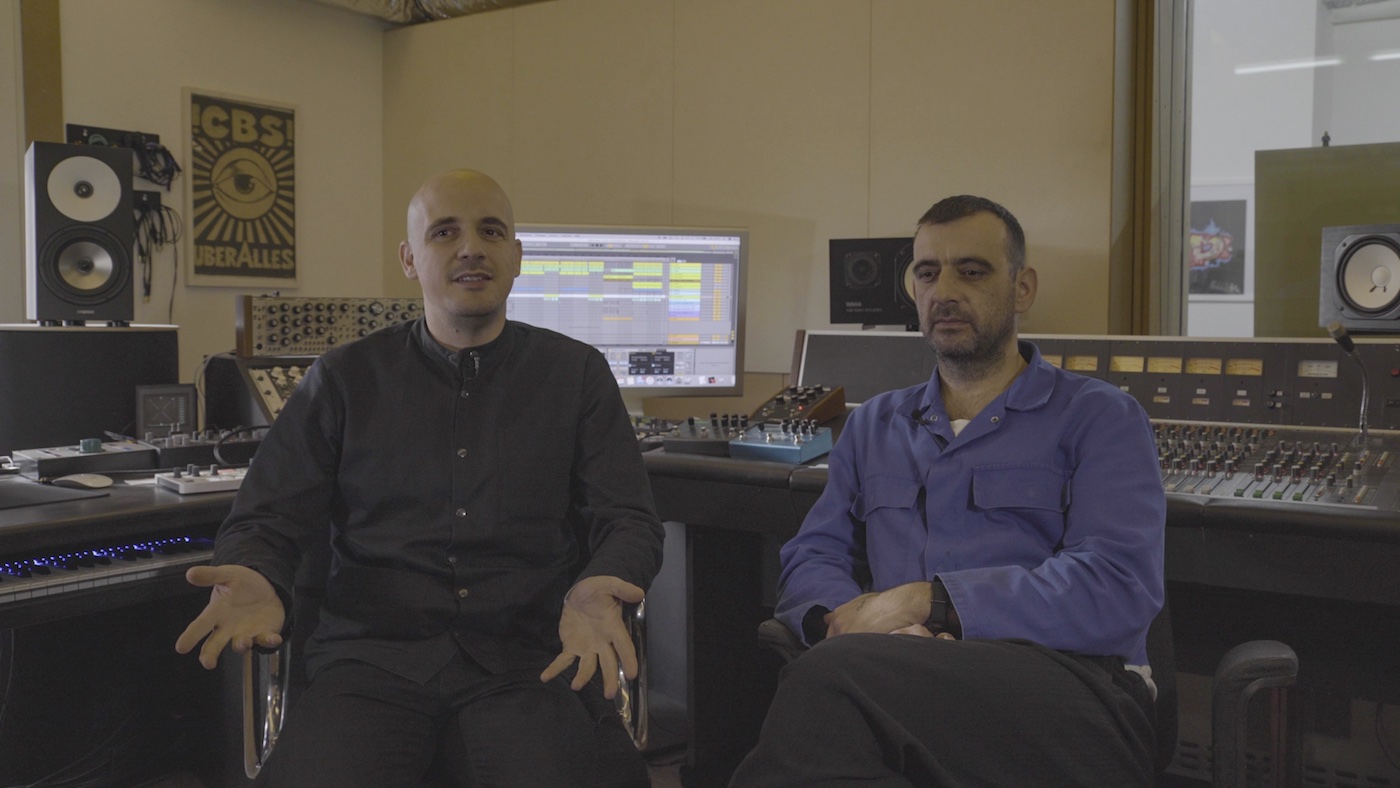
Modeselektor
Gabin wrote the script only two years after the start of shooting, which was a bit strange, as he had already much more material than was needed. We then thought: “OMG! We can’t include it all in the film.”
Once you start editing, any director will tell you that it is time to kill your darlings. It means giving up some beautiful scenes because you don’t have enough time. This is really heartbreaking! But the first version of the documentary was about 2 hours long. We needed to make it shorter to keep people engaged.
But getting the right balance is hell. With DJing, it is the same, by the way. You always have to watch your crowd, and when you feel that people are not dancing as much as you would like, you change the music and go somewhere else. My sets are influenced by many things, but most of all by the vibe on the dance floor. And I think it’s the same with people’s attention when they are watch movies, you need a rollercoaster not to lose it.
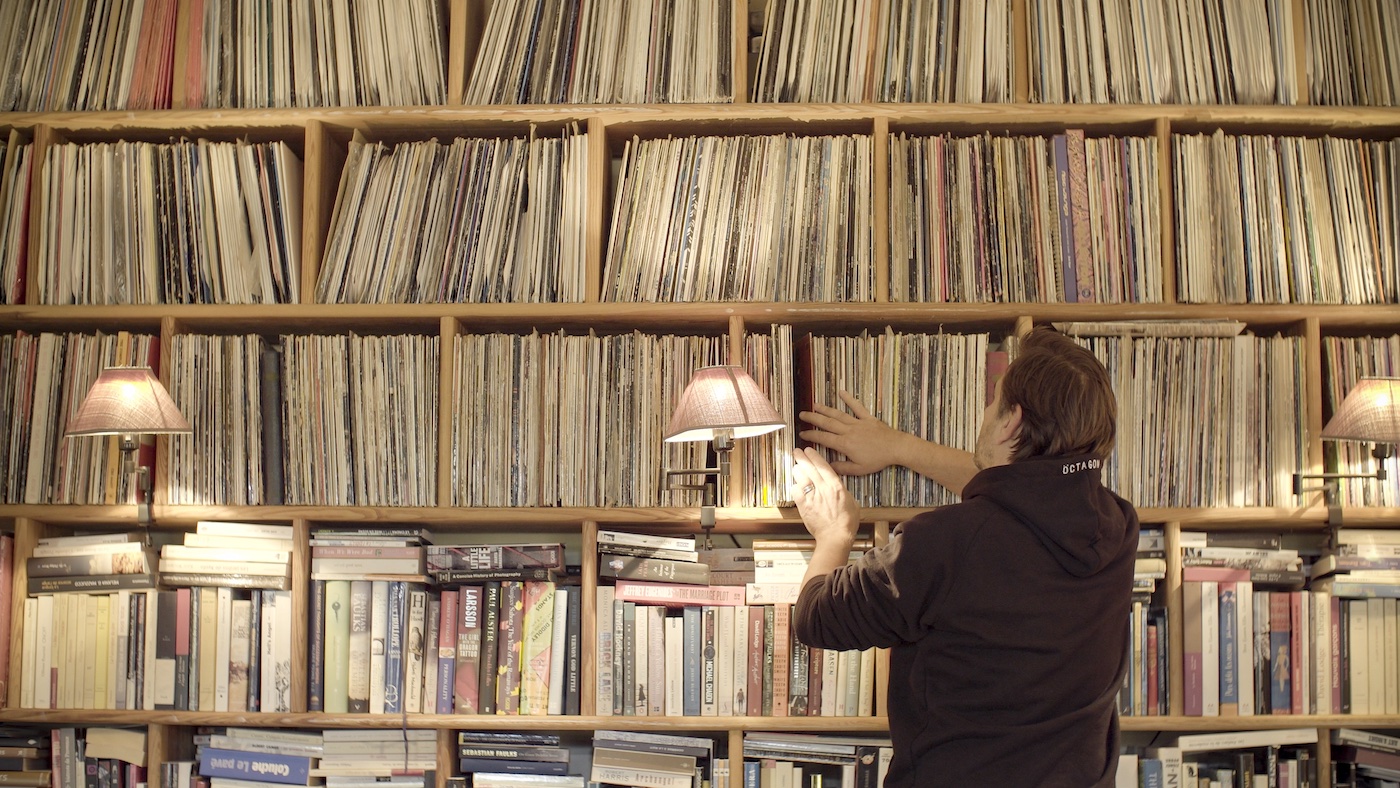
Laurent Garnier’s record collection
— And what ideas did you give up while working on the film? What darlings had to be killed for the better?
— We have done some interesting things and touched on more topics — about many, business, one was quite political. Since I also worked in a restaurant, we wanted to show the parallels between DJing and gastronomy in the documentary. So, we went to the Michelin chef. We cooked and ate together and then interviewed him. And it was very interesting that he and I used the same vocabulary when talking about seemingly different things, food and music. Unfortunately, we had to cut that scene.
Or there was also such a moving story about the old couple following me for many years. She is about 78, and he is 82 yo. I see them about 15 times a year, this is how much they go out. And they follow not only me but also other DJs. They are very big fans of techno music.
ГGabin met this couple four years ago at the first party I took him to. It was in the Lyon club called Le Sucre. When he saw these people backstage, he came to me saying: “Laurent, I think your parents are here”. That was fun.
We filmed that couple many times. At Time Warp in Germany, in Paris, elsewhere. We also had a beautiful scene from their house. First, they were serving each other cake and drinking tea, it was so cute! But then the camera turned, and you saw a piece of furniture with hundreds of rave flyers and festival passes.
That was the end of the scene, and the next one was footage from Germany, where he and she were dancing with me on stage like crazy, despite their 80 years of age. We wanted to start the movie with this, it was one of our favourite scenes. But in the end, it didn’t work out.
— But it is probably super hard to edit your own work. Especially when you put in so much effort and are really happy with the result.
— It is, yeah. The hardest thing for me is to let something go. Every time Gabin and I are watching the documentary, I see all my mistakes. I can hear the change of microphone and stuff like that. But I am the only one who hears it.
And it is always the same when I work on something. I am mixing my new album at the moment. And there are a hundred twenty different mixes of each track. My son is an engineer, so he goes crazy. He hates me because I never stop. I am never happy. Every time I feel we can change something and make it better. But at one point, you need to stop and let go.
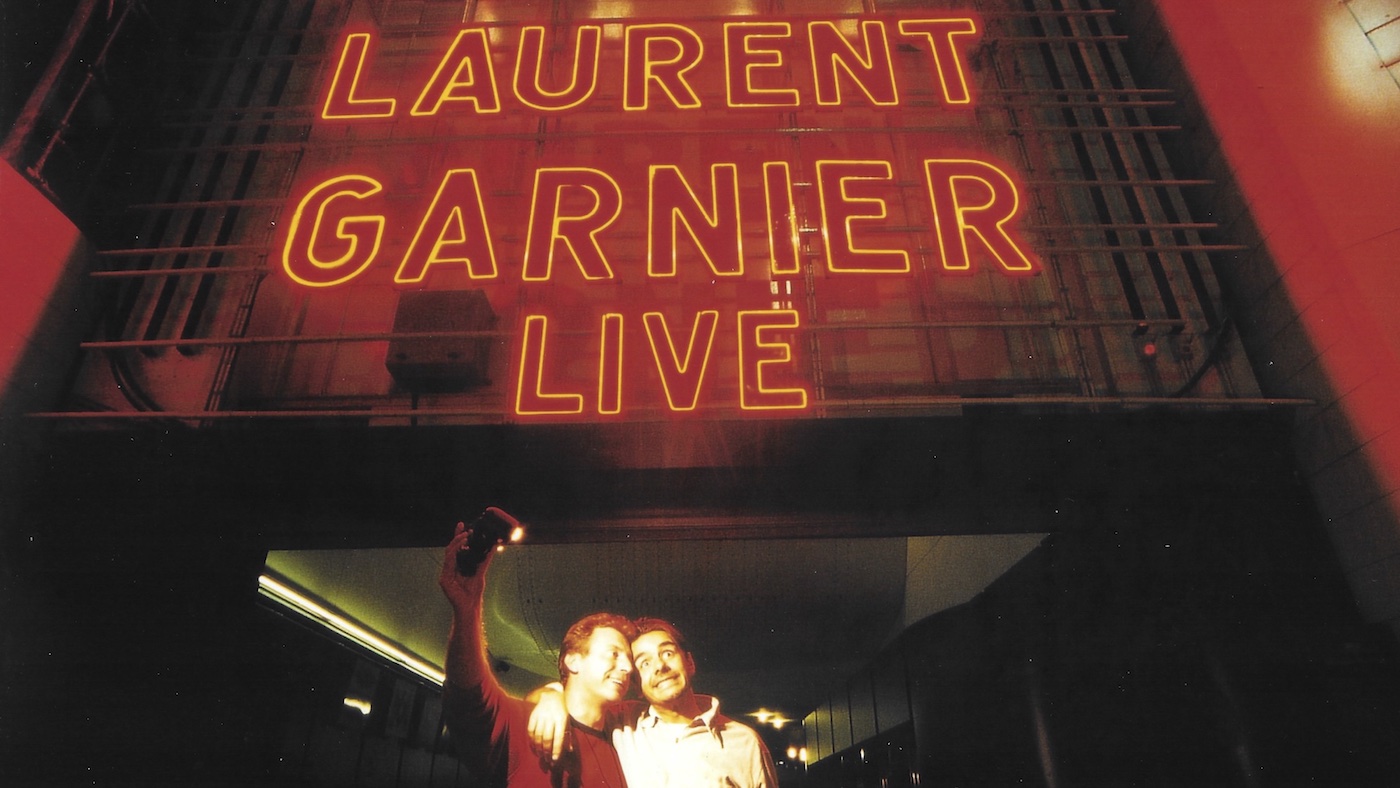
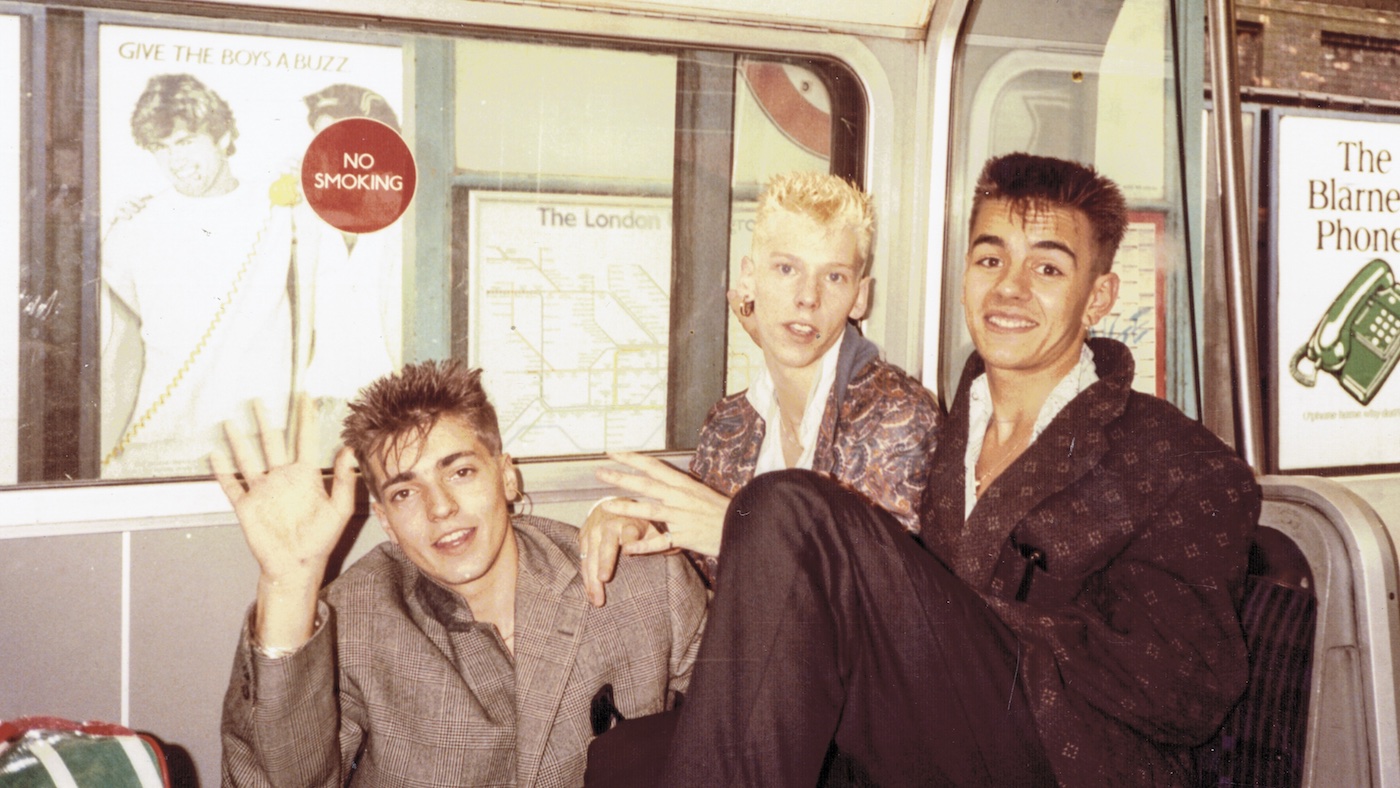
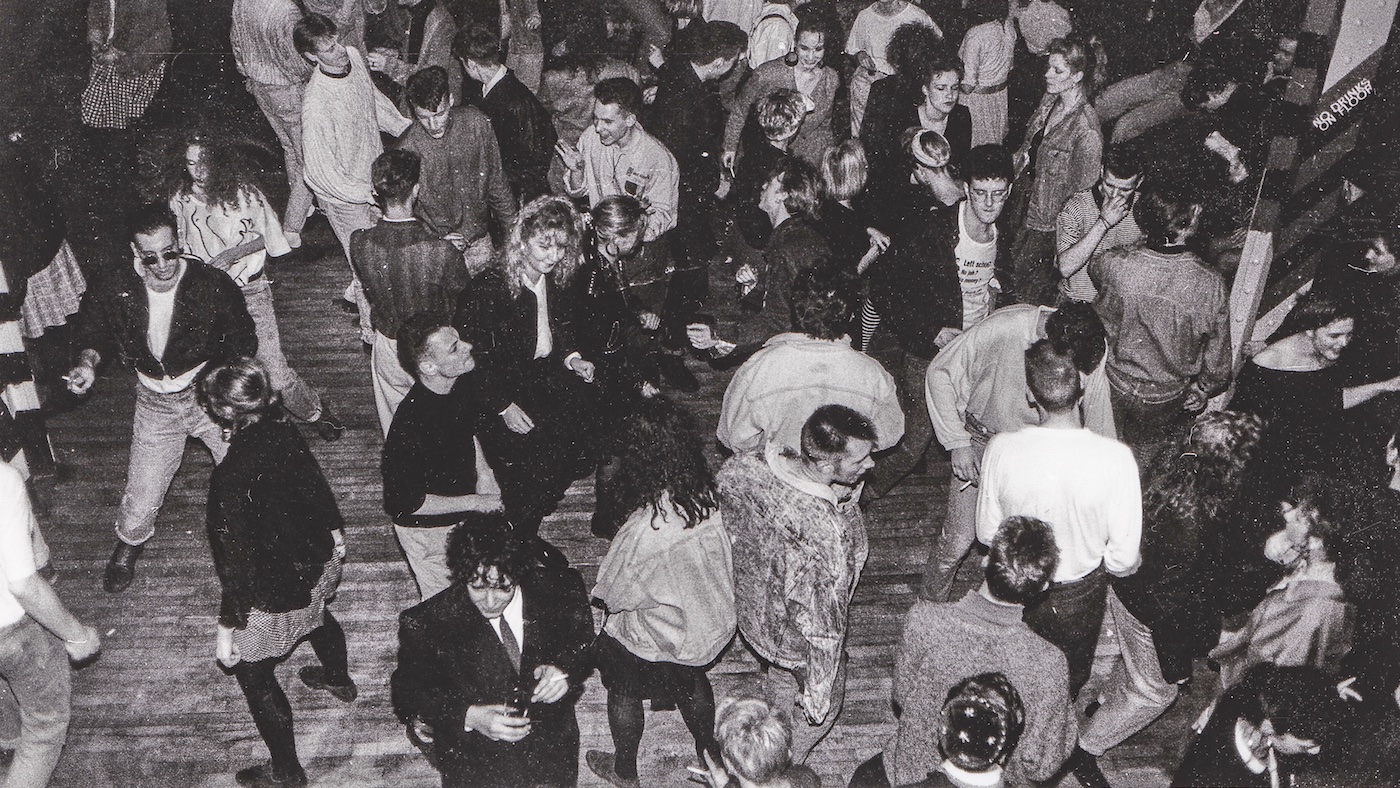
About the new album, playlists and algorithms
— Oh, so you work on the new album. But I remember you said in one interview that you no longer believe in the album format.
— The album format the way it was, yes. I don’t believe it anymore. I don’t like that it restrains you very much. With a CD you have no more than 80 minutes of music. As for the vinyl, It is only 25 minutes on each side. I mean, these are great things, but the concept of an album that has to be formatted this way is completely obsolete for me. I look at it more as a free project. It doesn’t have to be only one piece of work, because people consume music differently today.
— And what will your new album look like?
— I will release five EPs this year, and the sixth one will be released in January or February. There will be five hidden codes provided with the first five EPs. Once you find all of them, you’d be able to download the sixth EP.
The concept is not finished yet, but the idea is to also have a tape, perhaps a CD, and two or three vinyls. The album will be everything put together — 5 EPs from this year, 6th from next year, and all the other stuff.
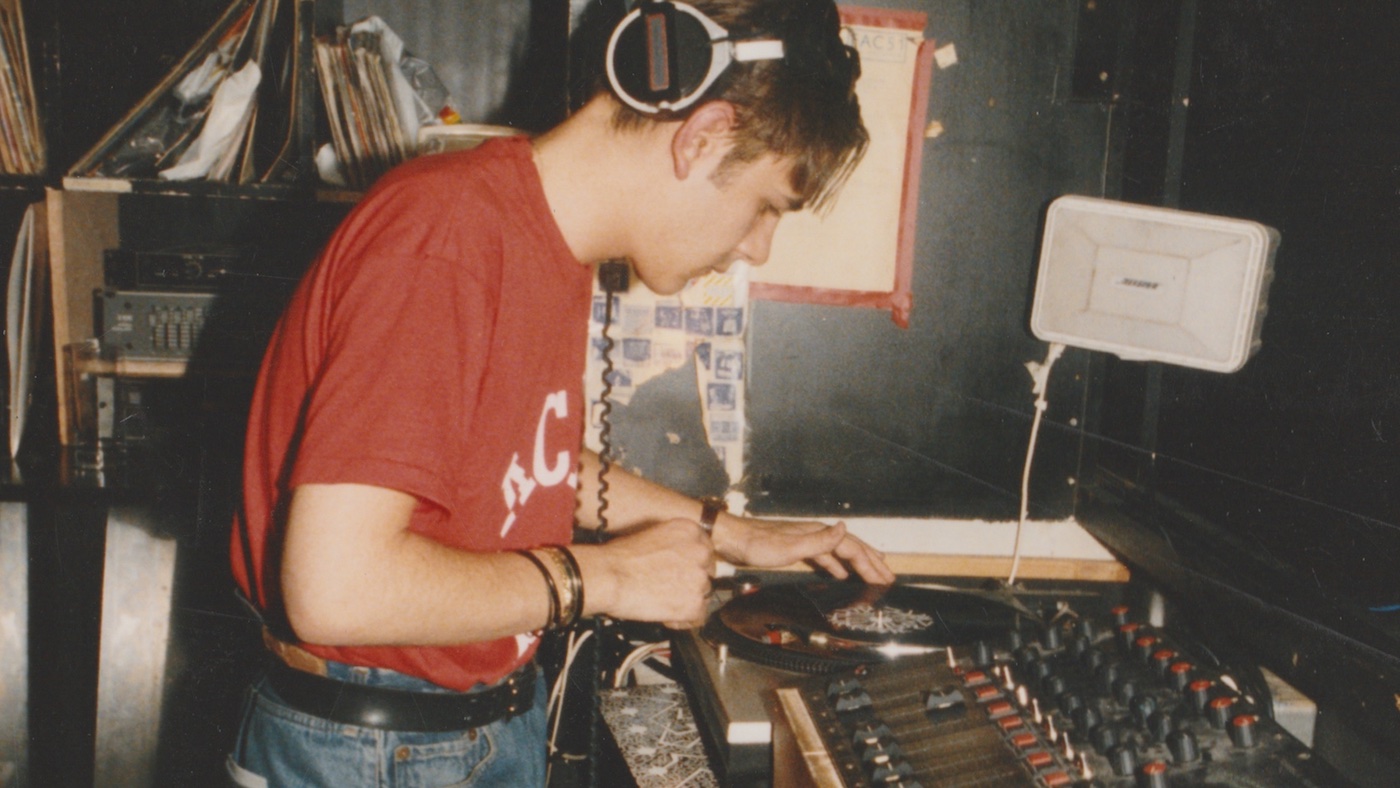
Laurent Garnier, 1988
— How do you think such a playful and engaging approach to realising music can rekindle people’s interest in musical discovery? Is it even possible to counter the popularity of algorithm-generated Spotify playlists?
— It is hard to get the younger crowd’s attention because kids are very stimulated with telephones and social media. They can do 5 different things simultaneously, like watching a movie, texting with friends, and scrolling. Asking that audience to sit down and listen to a 60 minutes album is extremely difficult. That is why I decided to split different formats, releasing 6 EPs instead of one piece of work. It will give them time to listen to all the songs.
You have to think of new ways to interest the public and how to present your music in the long term as we do with COD3 QR. We know that the life of the record is about two months. During this period, we do not announce the artist behind the release. And only later you will find out who made this music, which gives things last a bit more. That’s how it works today.
And albums are like films, it is a real story. The kids didn’t have the opportunity to get an education for it because of Spotify and all these platforms.
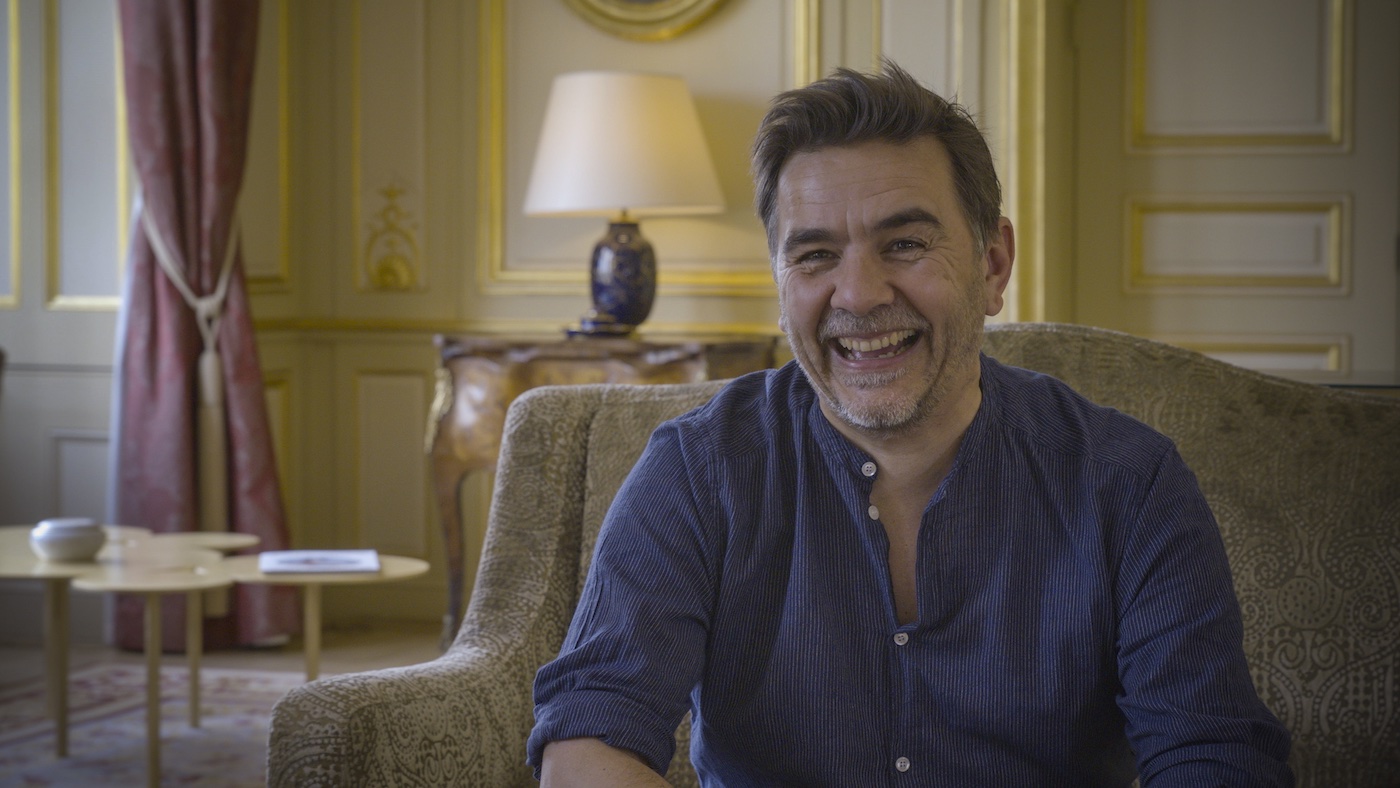
I see how my son works. He wants to be a DJ, and when he finds a great track, I keep asking him, “Did you go listen to this guy’s other tracks?” And he’s like, “Nope”. Really? Man, this is the first thing you should do.
Sure, it’s a bit old school, but you should check it out. Here’s how I do it. If I discover anybody, I go straight away and check through the entire catalogue of this artist. Because if some track really blows me away, there must be more.
— As for music, where are you now as a producer?
— I made a lot of music last year. I did an album with the French psychedelic band [The Limiñanas] and also scored a movie. It’s like a police thriller, quite dark. The film is finally out, and the soundtrack is as well.
I also worked on this sort of album project. I’m halfway there — 15 tracks are ready, and I want to have like 30.
Because of COVID, I was not able to DJ and play the party music, so the next album will be more dancefloor than any other I’ve ever done.
It all has to do with your mood, frustrations, and how you feel when you make music. But once I finish this album, I may go in a completely different direction. I really enjoyed working with The Limiñanas, so probably we will collaborate again. I’m also very interested in doing a project with a classical orchestra, as well as a hip-hop artist. So, there are lots of ideas.
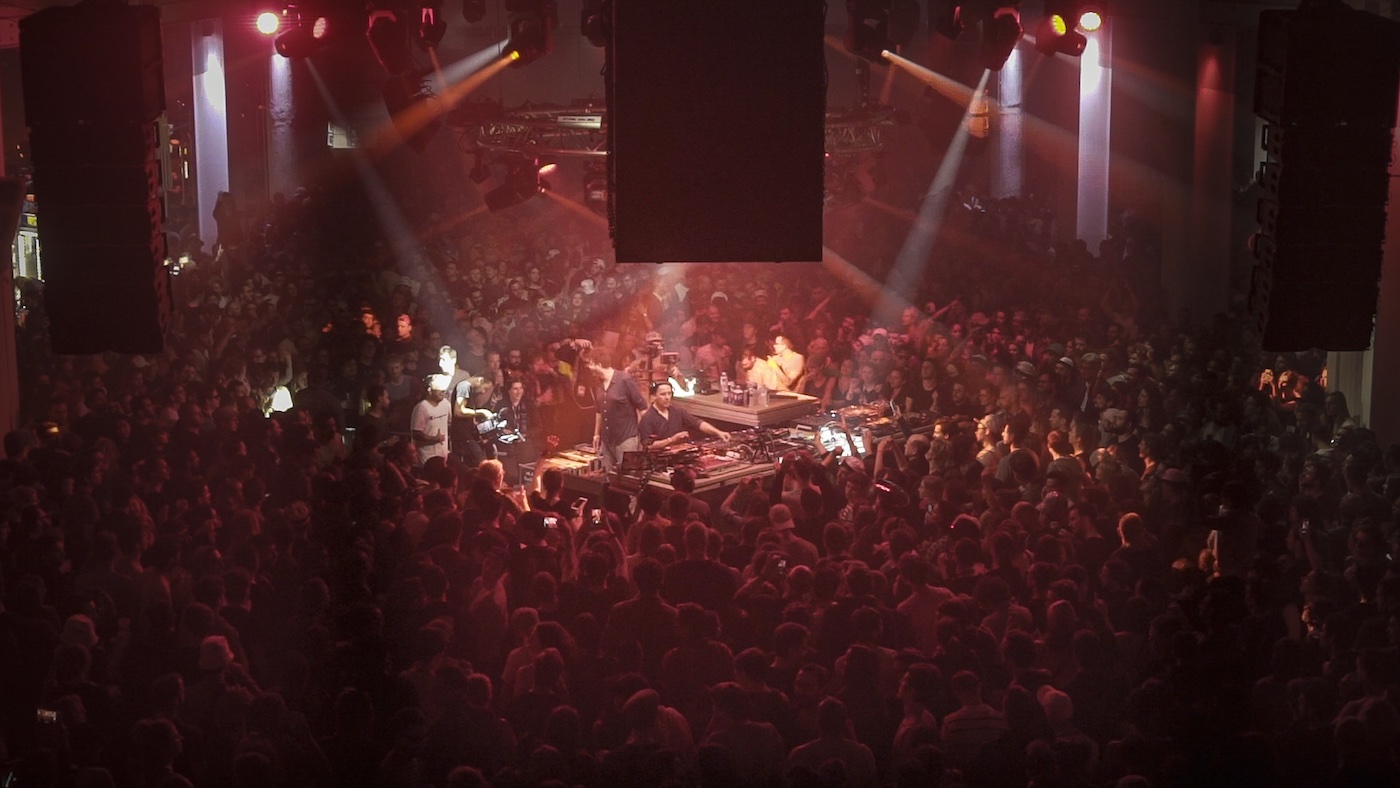
About the commercialization of the music scene, the love of music, and the artist’s position
— How do you reflect upon the last three decades in terms of the techno and house scene development? What changes in this field do you personally like and what do not?
— There was a big turn around 2000, when a lot of new people, managers, came into electronic music, as well as a lot of money. And it kind of split the scene. Someone is only interested in making money, while others work because of the love of music. But it is ok once you choose your side. I know where I belong.
I’ve always been a music lover. For me, it is about telling a story and building a proper relationship with the crowd in front of you to make people’s night magic.
And sometimes, this huge industry with parties that are kind of soulless bothers me. But then again, this is the evolution of festivals and the evolution of things. I don’t have a big problem with that. This is just not what I fought for. We fought to be accepted.
On the other hand, I am close to many underground labels, artists, and collectives that make amazing music, and the scene is still very terrific. There are many cool clubs, where I like to play and feel like I’m doing it for the right reasons. And it’s magic. So, I think the evolution of this music is healthy and good. It’s developing in many different directions, some of them I like and some I don’t. But you can’t like everything.
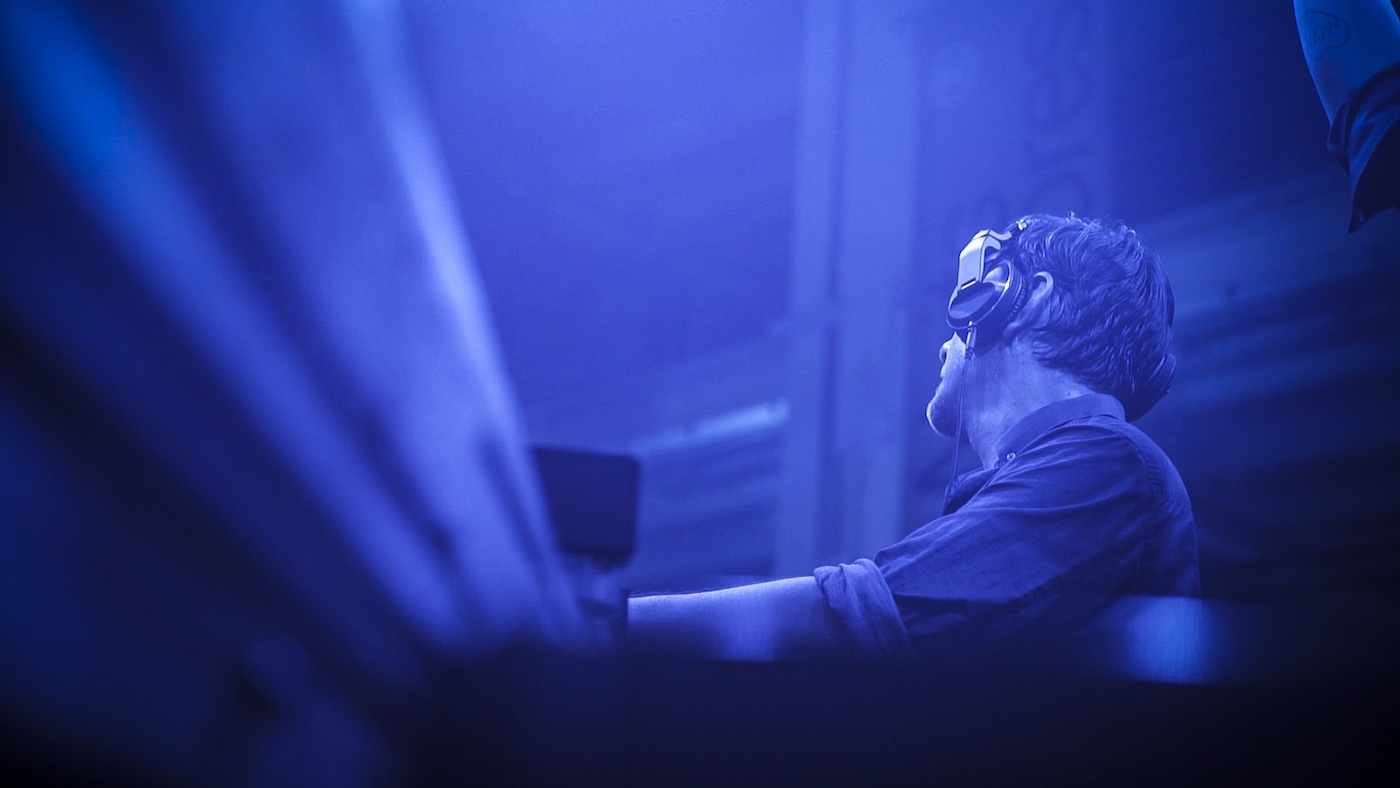
— But do you feel that the music itself is still evolving? Because you are literally one of those people who has been writing this book from scratch.
— Well, the sound has changed a bit, but, at the end of the day, the house music we are listening to now is very similar to what it was 40 years ago. Techno music back then was a definition of the future. Derrick May, Jeff Mills, people like that, their production is a little different from today because the machines were different. However, the formula itself is not.
And the same situation with rock-n-roll, jazz, or hip-hop. The technologies make new stuff sound stronger, fresher, or louder, but music-wise it hasn’t changed that much. And I don’t think there was a real musical revolution in the last 15-20 years. I haven’t heard anything fundamentally new.
Even UK music, which is very much based on breakbeat and two-step, comes and draws inspiration from 30 years ago. But it is not bad, because the quality is still amazing. And we also have so many choices. Things still are very exciting.
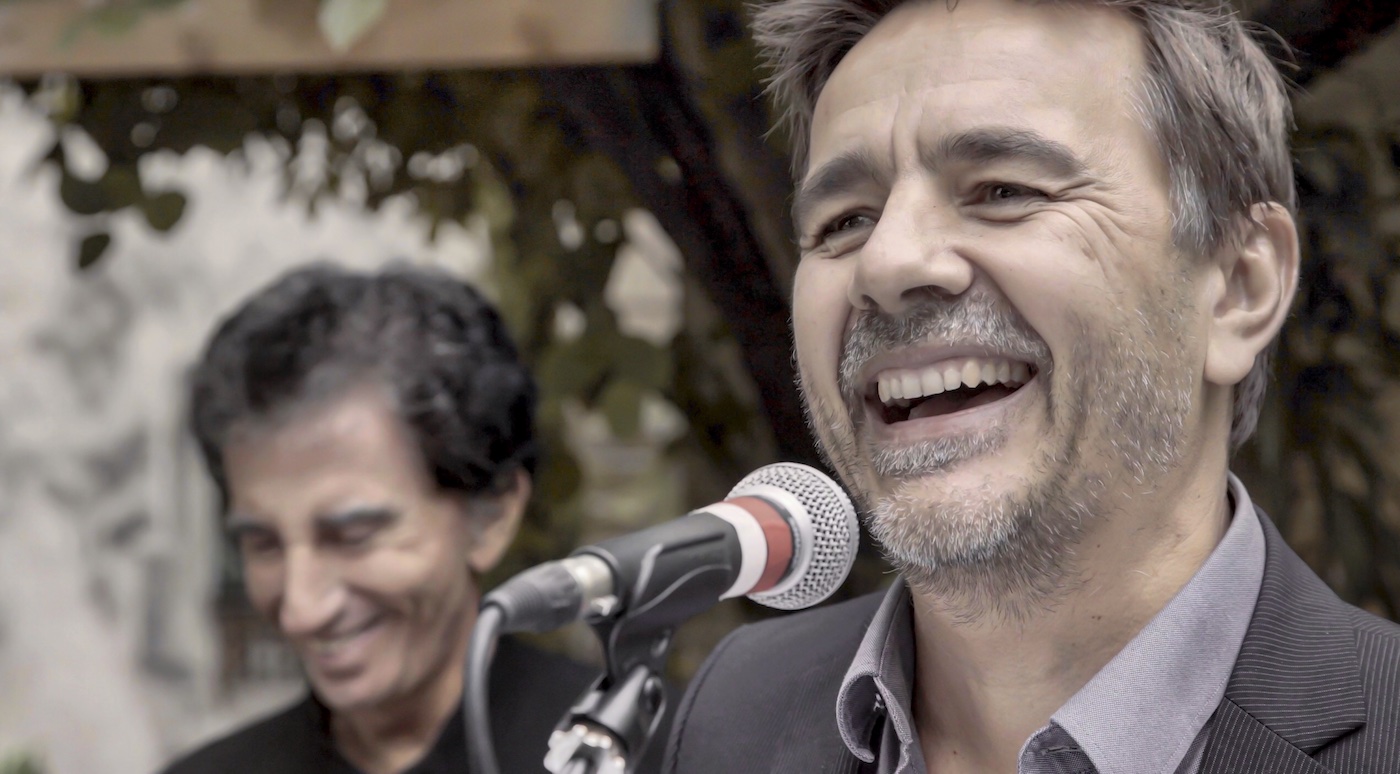
But it will be fun if something completely new comes out for the kids. You know, like it was with my generation when we didn’t understand at all what was going on, what those crazy sounds were. And I want that for my son.
Maybe one day, I will walk into his room and hear stuff that makes me go, “What the fuck? I do not like it”. But for now, I’m just asking, “Oh, what’s the track playing? I love it.” Because I understand it.
— With the rise of social media and the influence of DJs on their audience, do you think they should use this publicity to speak up about important topics outside of music?
— With that many followers, at the end of the day, you do have to take a position and make sure that people understand what you stand for. And it was like this even before social media.
We discussed this topic in the documentary, referring to the history of the Tbilisi club “Bassiani”. You will also see short footage from The Rex in Paris. I am playing a punk song in there that says, “The youth fucks National Front” I’ve been playing this track for over 25 years, every time before an election in France. Just to make sure, the crowd in front of me knows which side I am on.
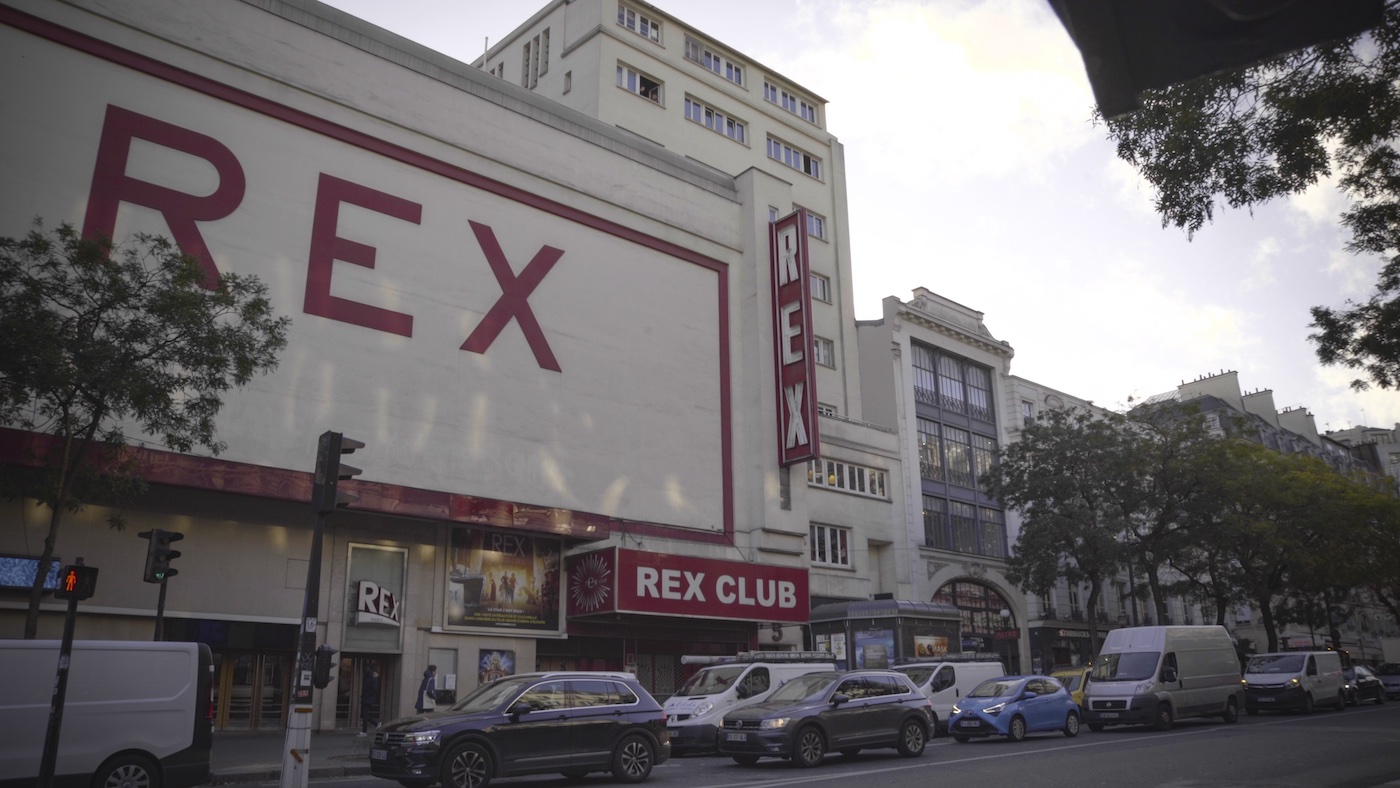
Клуб The Rex у Парижі
Or once, I came to New York to play the day Trump voted to ban Muslims. It was important to put on a record that would show people that I disagree with their fucking president, with his decision, and I believe that we are all together. I am always trying to build a relationship with the crowd, and we need to understand each other.
I know we created a big community, so once in a while we should say something. Not always, because then, you are becoming a political person. But when it is important you shouldn’t stay aside. Otherwise, as The Blessed Madonna noted in the film, it is very fucking naive and intellectually stupid. You can be against the war, or stand for LGBTQ rights. But you need to find something. It’s lame not to talk about such things in the world we live in.
When the war started in Ukraine the PR company that was making a music compilation in support of Ukraine asked me if I could produce a track for it. The time for this was super limited, they needed it by Monday. However, I had no doubts. I knew it was insignificant help, but I had to do this.

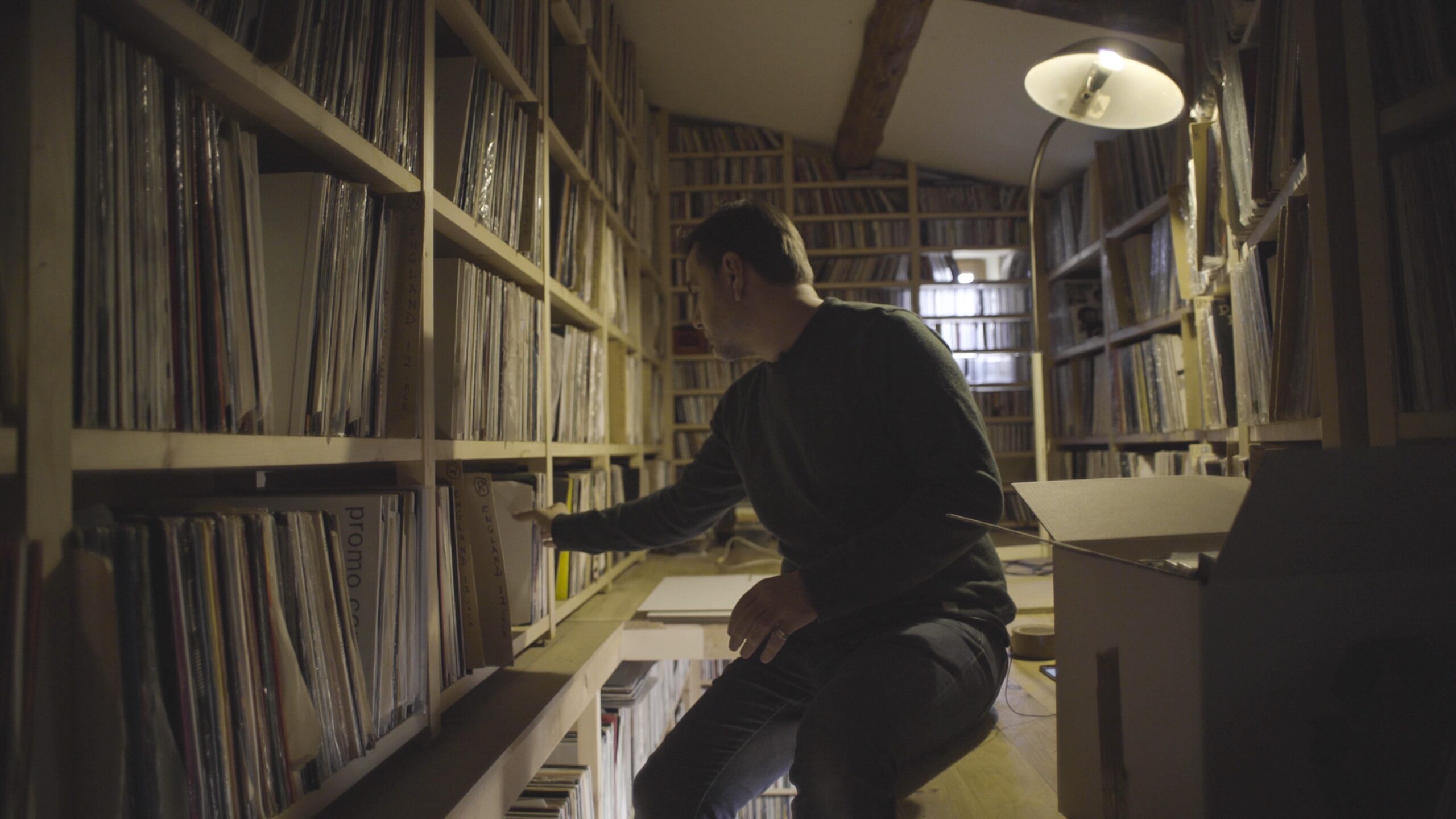
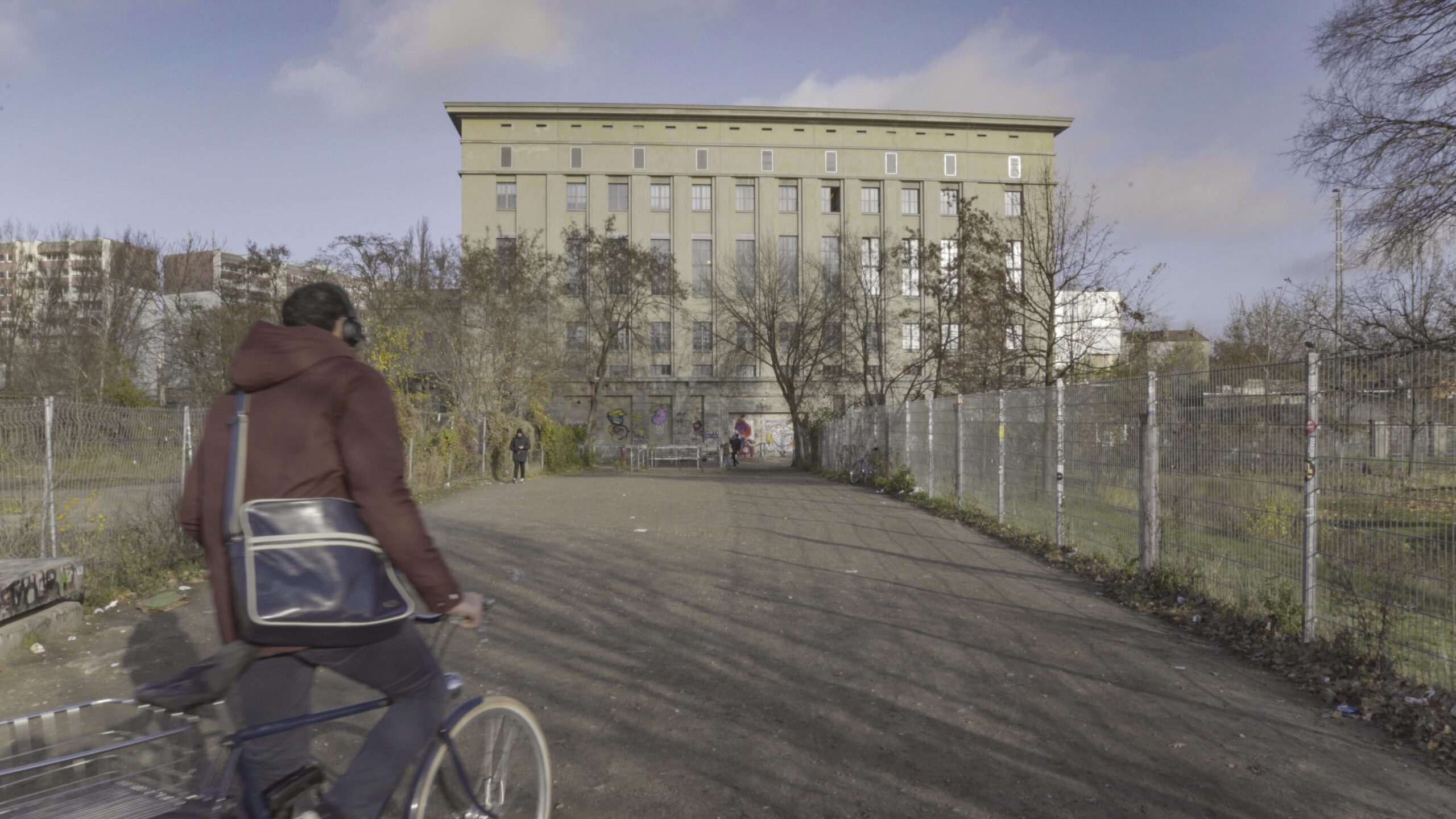
— The war in Ukraine kind of divided the scene into several corners. Some people have supported Ukraine since the first days, and others still remain on the sidelines, hiding behind the conviction that music is not a political thing. And, of course, this causes a lot of discussion and criticism. But I like that you pointed out that there are many more ways to take a position and express your support than just posting on social media. You can make a compilation, play a meaningful song, volunteer, etc.
— Exactly. I also participated in the gig when the whole French scene gathered together to earn money for Ukraine. It is normal to do things like that. You can’t play music and try to build a relationship with people staying aside, acting like nothing is wrong. It doesn’t compute. You need to love people to play for them.
But what I don’t like about social media is its hateful nature. Especially after COVID, when the horrible nonsense was posted all the time, these anti-vax ideas, I felt like, «OMG! This is far too much for me». I switched from socials for some time because all I read and saw was anger. People acted really hardcore to each other. But you don’t have to be that aggressive. First, you can say things you believe in nicely.
So, I blocked the commentaries for every post I wrote about Ukraine. I got so much love, but hate as well. I don’t want this shit. But then again, I didn’t express anything aggressively. I just said these people should be helped, and I want to help them.
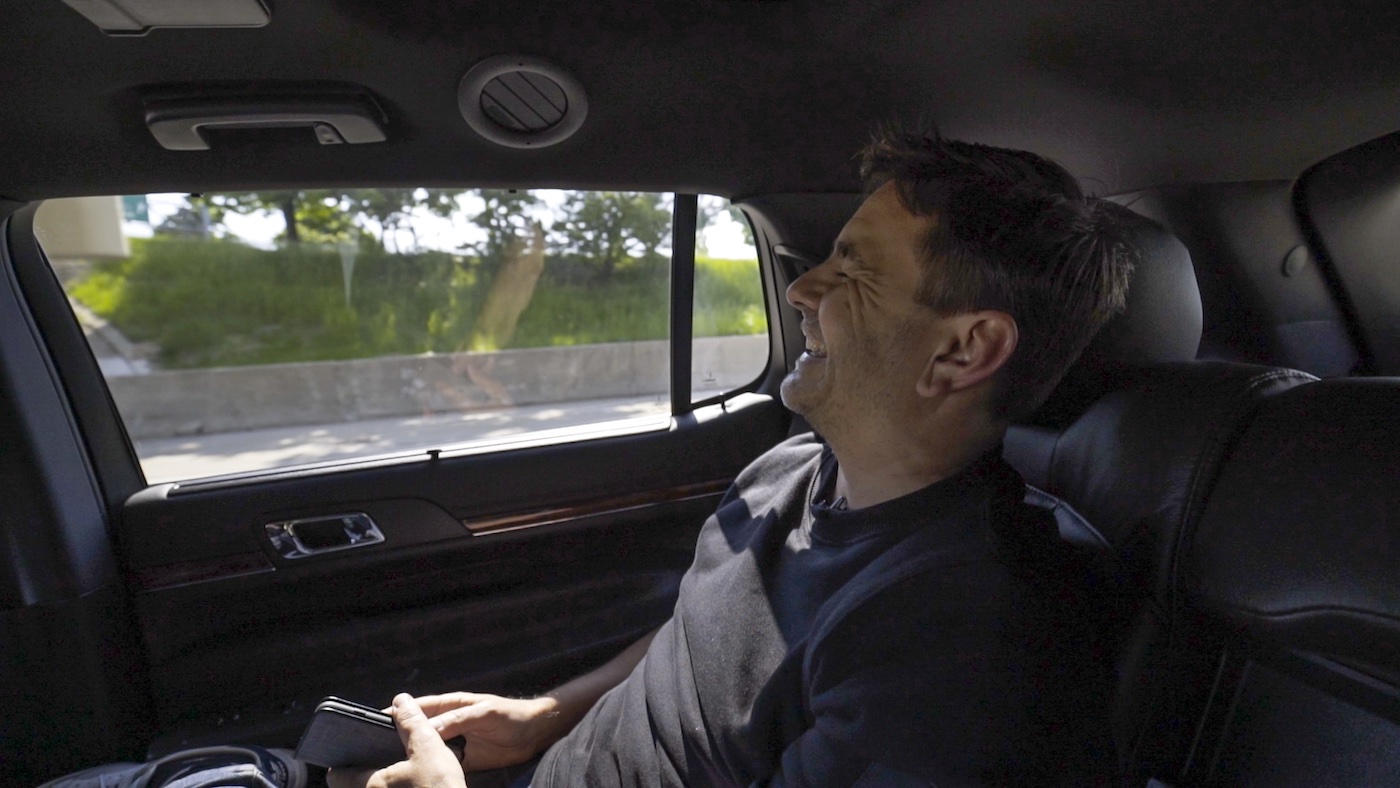
About gastronomy, hospitality, and other plans
— Making music for television and theatre, scoring films, making a documentary, writing a book, and even working at a restaurant…
— I still work at that restaurant. I go there once a month. During COVID, I worked there for a year and a half with a Japanese chef because it was boring at home. We got along very well, and after the lockdown, I asked if I could continue to carry on once in a while.
— But are there any other areas you’d love to try your hand at?
— I’d love to make a futured film. The project is still in my head. But then again, everything I want to do is a lot around music, except food.
I will start a new radio show next year. I also organise one festival, and there is an idea to do an art residence during it. The artists will work for 10 days and then play a concert. We want to provide them with good food, wine, and everything that needs to feel welcomed. This is a nice direction to go as well. I like to host people and support their creativity.
We will see what project will come next. I’m a curious guy, and I always go deep while working on something, putting in lots of effort.
Our other articles on electronic music:
